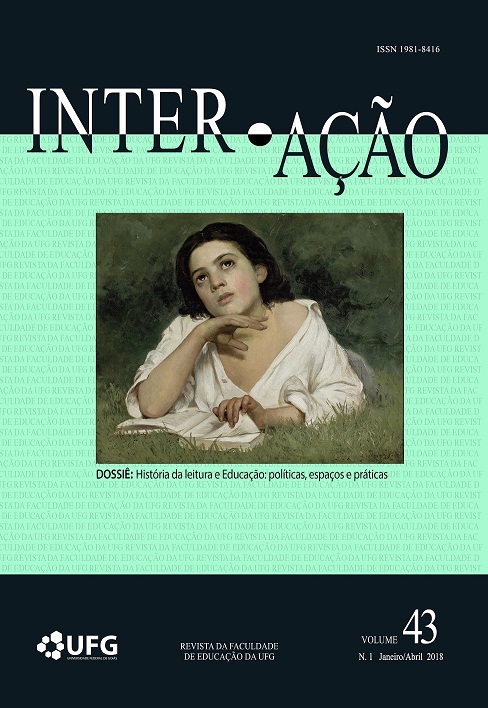Farol do saber: limites e possibilidades de uma biblioteca escolar na formação de leitores literários
DOI:
https://doi.org/10.5216/ia.v43i1.49941Abstract
Neste estudo de caso de natureza etnográfica, desenvolvido em 2015, investiga-se as ações desenvolvidas num Farol do Saber, da Rede Municipal de Bibliotecas Escolares de Curitiba. As especificidades de uma biblioteca escolar, segundo diversos autores, incluem: função educativa e integração à escola; espaço de convivência, de debate, de reflexão e de incentivo à leitura; acervo de qualidade, direcionado para jovens leitores e com acesso integral e livre aos alunos e professores; ambiente de liberdade e ludicidade; mediadores de leitura com ações planejadas para a interação entre as pessoas e as obras e fomento de leitores autônomos, capazes de buscar o que desejam no acervo e de refletir sobre a leitura realizada. Conclui-se que o Farol do Saber pesquisado cumpre a função de biblioteca escolar de forma limitada e precisa ser repensado para de fato formar leitores.
Downloads
Downloads
Published
How to Cite
Issue
Section
License
Inter-Ação uses the Creative Commons Attribution 4.0 License for Open Access Journals (Open Archives Initiative - OAI) as the basis for the transfer of rights. Open access means making documents available on the Internet free of charge, so that users can read, download, copy, distribute, print, search, or link to the full text of documents, process them for indexing, use them as input data for software programs, or use them for any other lawful purpose, without financial, legal, or technical barriers.
Authors publishing in this journal agree to the following conditions:
1) Authors retain copyright and grant the journal the right of first publication, with the work simultaneously licensed under the Creative Commons Attribution License, which permits redistribution of the work with attribution and first publication in this journal.
2) Authors are permitted to enter into additional, separate agreements for non-exclusive distribution of the version of the work published in this journal (e.g., for publication in an institutional repository or as a book chapter), with attribution and first publication in this journal.
3) Authors are permitted and encouraged to publish and distribute their work online (e.g. in institutional repositories or on their home page) at any time before or during the editorial process, as this may generate productive changes as well as increase the impact and citation of the published work.















